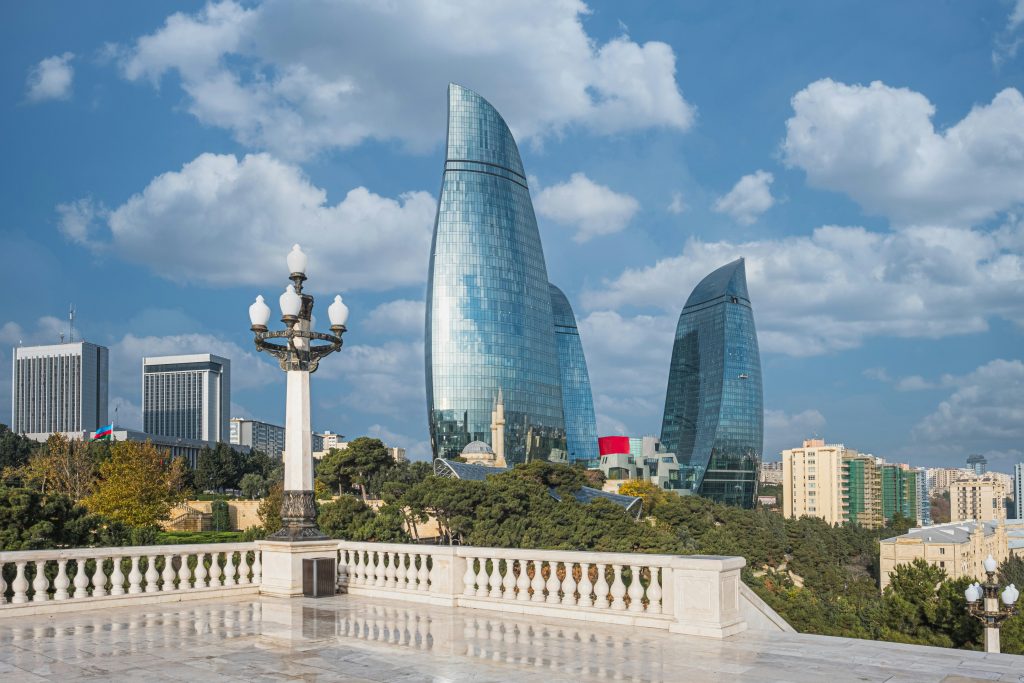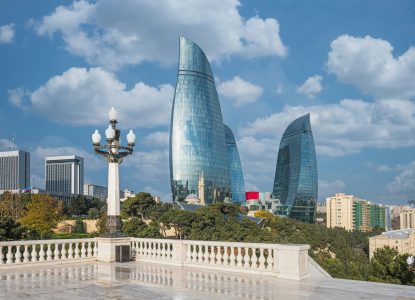By JoAnne Wadsworth, Communications Consultant, G20 Interfaith Forum.
Despite the disappointment expressed by many on the world stage in response to the agreement arising from the 29 th Session of the Conference of the Parties (COP29) to the United Nations Framework Convention on Climate Change (UNFCCC), participants and attendees of presentations of the Faith Pavilion at COP29 left Baku with reason to hope: increasing engagement of religious leaders and faith-based organizations in ongoing climate action and future climate discussions and negotiations.
The week-long event featured keynote speaker Cole Durham, President of the G20 Interfaith Forum Association, alongside Husna Ahmad and Arnie Saiki of the G20 Interfaith Climate Working Group, with organization and moderation by the Muslim Council of Elders, who brought together ninety-seven organizations representing eleven different religions and sects.
– – –
Despite the disappointment expressed by many on the world stage in response to the agreement arising from the 29th Session of the Conference of the Parties (COP29) to the United Nations Framework Convention on Climate Change (UNFCCC), participants and attendees of presentations of the Faith Pavilion at COP29 left Baku with reason to hope: increasing engagement of religious leaders and faith-based organizations in ongoing climate action and future climate discussions and negotiations. The Muslim Council of Elders, organizers of the Faith Pavilion, brought ninety-seven organizations representing eleven different religions and sects to the Pavilion in Baku. The focus was on the importance of integrating spirituality, morality, and ethics into climate debate, negotiation, and action, inspiring a new perspective and motivation for climate action.

Early sessions at the Faith Pavilion focused on the role of religious leaders and religious groups in the climate conversation. G20 Interfaith Forum Association President Cole Durham delivered the opening keynote, urging leaders to revitalize and renew the virtue of proper reverence—reverent awe—for all creation. As the week progressed, the discussion focused on the application of spiritual beliefs and perspectives to climate finance and the non-economic impacts of climate change, on the role of women in achieving climate justice, on helping youth understand faith teachings on earth stewardship, on encouraging partnerships for climate adaptation, and on employing Indigenous and interfaith wisdom in climate and sustainable development solutions. G20 Interfaith Climate Working Group members Husna Ahmad and Arnie Saiki participated on a panel promoting women’s leadership in achieving climate justice, highlighting the climate work of women leaders of spiritual movements and faith-based organizations. In addition to providing a forum for discussion, the Faith Pavilion fostered networking opportunities for future G20 Interfaith Forum events and policy development.
— —
JoAnne Wadsworth is a Communications Consultant for the G20 Interfaith Forum Association and Editor of the Viewpoints Blog.


